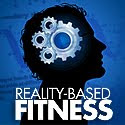As winter approaches (well, not really here in Phoenix, it's still been in the 90's for the past 2 weeks!), and more and more people spend time indoors, it's fairly commonplace to start seeing a lot more colds and flu's going around. In fact, nothing put's a damper into one's fitness training like a nice sinus infection or influenza virus!
So what is one to do? There's always the flu vaccine, and for many, that's a good choice as the influenza virus routinely kills around 30,000 Americans each year. Who should get the vaccine?
Well, basically anyone who wants to reduce their risk of getting the flu. It is generally encouraged that young children (over 6 months of age), the elderly, pregnant women, those with chronic diseases and medical conditions and anyone working in the healthcare field (and thus in contact with many people) get the vaccine each year. However, anyone with allergies to chicken eggs should NOT get the flu vaccine as that is how the vaccine is created, through chicken eggs. For more information on the flu, vaccines and treatment for the flu, check out the Center For Disease Control's informative website: http://www.cdc.gov/flu/protect/keyfacts.htm
A More Wholistic Approach?
While the flu shot sounds like a logical choice, many millions of people will opt not to get the vaccine each year and instead rely on more "natural" choices such as herbs and specific "immune-boosting" nutritional products. Some of the more popular immune products that sell like hot-cakes during the cold & flu season include Zicam (a Zinc nasal spray which apparently can make some lose there sense of smell when over-used!), the herbs Echinacea and Goldenseal, vitamin C, a product called Airborne (created by a teacher who was tired of getting sick), Cold MD, Cold-FX, and too many other products to mention. I won't even give the homeopathic remedies a mentiond because there's really nothing in them to test(mostly water).
Of all the products mentioned, the only substances shown to have any effect on cold durations are vitamin C (may decrease colds by a day or so) and possibly Echinacea. However, a recent study by the National Institute of Health showed that Echinacea had no appreciable effect and cold and flu durations. I've taken Echinacea and Goldenseal in the past when I was getting sick and felt at times it helped me and at other times it didn't. It's really hard to determine how much of the effect you get when taking a nutritional supplement is just in your head (i.e. the "placebo effect"). All of the other products (including the very popular Airborne) have been studied and shown to do nothing substantial to merit their use or cost.
So What To Do Then!
Short of having a healthful lifestyle (eat well, exercise, sleep enough, control your stress, etc...), the best way to avoid getting sick is:
1) avoid sick people of possible, and
2)don't touch your nose, eyes, or mouth without first washing your hands!
Regarding hand washing, research shows that plain old soap and water work just as well as the anti-bacterial soaps (which apparently are causing bacteria to become more and more resistant to antibiotics!).
Great, Sick; Now What?
If and when you do get sick, stay home if you can while resting more, drinking lots of fluids, and counting the money in your bank you didn't waste on supplements that don't do anything to help you get better. I think good old-fashioned Chicken Noodle Soup is probably more effective that many of those products.
To end this blog, it is important to understand that when resuming your training post-illness, start with lower volumes and slightly reduced intensities for at least a week to allow your body to re-adjust to the workload. Too much too soon can hinder your immune function and send you back to bed. No bueno!
Saturday, November 10, 2007
Subscribe to:
Post Comments (Atom)







6 comments:
Keats
Any recommendation on Vitamin C dosage? I am the all natural kind myself and rely on water and I thrown in Emergency C packets, I have only been sick once over the past 3+ years thanks to as you mentioned a healthy lifestyle and diligently washing hands after clients, etc.
To Good Health through the Winter and beyond
Joe
Joe, thanks for the reply.
I don't think there's any definitive consensus on what amount of vitamin C to take for reducing cold symtoms for example.
According to the good scientific studies (there are so many bad studies in the literature), if a person takes a pretty hefty dose (between 250 mg and a couple of grams) upon getting cold symptoms it may shorten the length of a cold; but only by a day or two. It also seems to reduce the severity of the cold symptoms; but not by that much. This kind of makes sense since vitamin C has sort of an anti-histamine effect. BTW, the RDA for Vitamin C is 60mg and for athletes it is recommended to take anyhwere from 140 to 200 mg per day according to some of the sports science literature.
The amount of vitamin C taken when healthy dosn't seem to prevent one from getting sick however, unless the individual was deficient in the vitamin to begin with.
The more I read about vitamins and minerals the more it seems that smaller amounts (and preferably from food sources like fruits and vegetables) are better than mega-doses from supplements.
Thanks Keats and yes, get your nutrition from High quality foods is by far best and a supplement is just that to supplement for what you may lack not to replace food.
Nice work here on your blog Keats! look forward to meeting you sometime
Good info!
Remember that any anti-oxidant (like Vit C) can actually be a pro-oxidant (the opposite) in high amounts. What is a high amount is the big question and will probably vary on the person and their stress level, nutrition, etc.
Rock on!
Mike N
Critical Thinking question? How do we look at the dosages Linus Pauling took, up to 20,000 mg a day?
I believe he is considered to be the 'father' of vitamin C and was still teaching college into his 80's and lived to his 90's. I do realize a lot of factors contributed to this but an interest fact is his daily dosage of Vitamin C. PS: I am unsure of his sources for the Vitamin C.
Joe, Linus Pauling was the only person ever to win two Nobel prizes (neither were in nutrition). His first was for chemistry in 1954 and his second was for peace in 1962. Beyond these accomplishments, no credible nutrition scientists have yet to agree with his "mega-dose" theory of vitamin C.
Pauling was pretty much responsible for starting the notion that high doses of vitamin C are effective against colds and other illnesses. He was also a proponent of high doses of other particular nutrients. He termed his approach "orthomolecular nutriiton," which means "right molecule." I can't find any recent research or nutritional or medical scientists that agree with his concepts so apparently he was wrong.
And as Mike pointed out, high doses of vitamin C can actually act as a "pro-oxidant," causing more damage to bodily cells and tissues.
A couple of pieces of fresh fruit per day along with some green veggies will probably go a long way for most of us in getting our Vitamin C!
Post a Comment